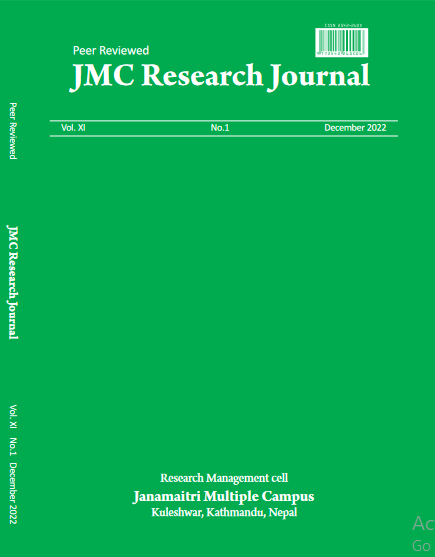Development of Gender-based Child Rearing Practices Scale
DOI:
https://doi.org/10.3126/jmcrj.v11i1.59254Keywords:
Child rearing practices, socialization practices, attitudesAbstract
The objective of this study was to construct a survey instrument that evaluates attitudes pertaining to gender-based child-rearing practices. Firstly, items of the scale were determined through a literature review and then judged by 5 experts. Based on experts’ judgment, the Content Validity Index was computed. The scores indicated excellent content validity. Based on I-CVI, only 25 items were retained. Then this scale was administered via Google form to 135 general people of Bangladesh and Nepal (77 female & 58 male) aged between eighteen and fifty-five years, with a mean age of 28.16 years. The process of data analysis was initiated by conducting item analyses, which led to the retention of 22 items. Subsequently, a factor analysis was performed on the retained items. The outcome of the exploratory factor analysis indicated the presence of five factors: cross-gender activities, methods of discipline, expression of emotion, play, and expected behavior. The present study found that the combination of these factors accounted for 58.22% of the total variance. Additionally, all inter-factor correlations were found to be statistically significant, providing evidence for the construct validity of the scale. The overall reliability of the scale was determined to be high, with a Cronbach's alpha coefficient of .86. Furthermore, the reliabilities of each individual factor were deemed acceptable. The t-test result suggested that married, Bangladeshi, male’s attitudes about child-rearing practices were more based on gender. The findings suggest that this tool exhibits a high degree of reliability and validity for measuring the intended construct. This tool will help researchers better understand gender-based child-rearing practices.

